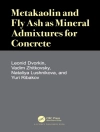Blockchain is a nascent technology with the potential to disrupt the operational and business models of many industries. The enormous successes recorded by solutions underpinned by blockchain have attracted much attention to it. Beginning from the emergence of Bitcoin in the financial sector, blockchain has continued to impact other industries. It finds application in healthcare, supply chain, energy among other sectors. The technology has emerged as a viable technology for enabling decentralized peer-to-peer transactions. With the high adoption of renewable energy sources, the modern power system has become decentralized thereby paving the way for the integration of blockchain-based solutions. In the energy industry, blockchain can be employed to facilitate decentralised peer-to-peer energy transactions between power grid entities, energy storage sharing among others.
Key features:
- Walks the reader through the basics of blockchain and smart contract development in an easily comprehensible manner suitable for beginners in the field.
- Further simplifies smart contract development for specific energy-related use-cases
- Simplifies the specific use-cases explored, such that the reader is able to adapt the solutions to other similar applications beyond the energy industry.
- Presents recent advances in blockchain technology and the state-of-the-art in blockchain-related research in the energy industry, which would be useful to researchers in the field.
- Contains useful information for relevant regulatory bodies including the reported barriers to blockchain adoption and policy & regulatory frameworks for improved adoption.
Cuprins
1: Introduction to blockchain and smart contract development
Introduction
Blockchain-related concepts (Cryptographic hashing, private and public keys, merkle trees, blocks, smart contracts etc.)
Blockchain architectures (Private, Public & Consortium blockchains)
Consensus mechanisms (POW, POS, DPOS etc)
Remix IDE, Truffle, Open Zeppelin, Ganache etc.
Smart contract development using Remix IDE
Summary
References
2. Real-world blockchains and their applications
Bitcoin (History, applications, strengths/weaknesses, consensus mechanism, blockchain type-private/public etc)
Hyperledger Fabric
Ethereum
Cardano
Summary
References
3: A literature review of recent advances in blockchain technology
Introduction
Scalability of blockchain networks
Transaction speed in blockchain networks
Security of blockchain networks
Privacy in blockchain networks
Centralization in blockchain networks
Discussion
Future work
Conclusion
References
4: Blockchain applications by Industry with a focus on the energy industry
Introduction Supply chain (where/how blockchain comes in)
Healthcare
Water
Transportation
Finance
Energy (Power Ledger, Grid Singularity, Greeneum, Ecocoin, Solarcoin, Share & Charge, Lo3 Energy, Bankymoon etc.)
Summary
References
5. Drivers of blockchain adoption in the energy sector
Introduction
Climate change mitigation
Renewable energy adoption (Distributed energy resources)
Decentralized modern power grid
The emergence of prosumers
Pooling/sharing of resources for optimal capacity use
Conclusion
References
6: A systematic literature review on blockchain research in the energy industry
Introduction
Methodology
Results
Discussion
Future work
Conclusion
References
7. Blockchain-based P2P energy trading via a double auction mechanism
Introduction and literature review
Smart contract-based P2P energy trading architecture and algorithm
Case study, results and discussion
Conclusion
References
8. Blockchain-facilitated P2P energy storage capacity auctioning
Introduction and literature review
Smart contract-based P2P energy storage sharing architecture and algorithm
Case study, results and discussion
Conclusion
References
9. Smart contract for P2P sharing of EV charging station
Introduction and literature review
Smart contract-based P2P EV charging station sharing architecture and algorithm Case study, results and discussion
Conclusion
References
10. Future of blockchain technology and its adoption
Introduction
Current limitations of blockchain technology
Barriers to blockchain adoption
Policy and regulatory framework for improved blockchain adoption
Conclusion
References
Despre autor
Uyikumhe Damisa, Ph.D. is a research scholar at the Centre for Cyber-Physical Food, Energy & Water Systems (CCP-FEWS), University of Johannesburg, South Africa and a postdoctoral fellow in the University. He is a recipient of the Global Excellence Stature Post-doctoral Research Fellowship Award. He has served the academic community in various capacities including lecturing power systems and supervising energy-related research. His research profile includes research in optimal energy management and blockchain-based P2P transactions in energy systems. He has co-authored journal publications and a book in the fields of renewable energy optimization and blockchain-based P2P energy transactions.
Professor Nnamdi Nwulu is a Professor of Electrical Engineering and the Director of the Centre for Cyber Physical Food, Energy & Water Systems (CCP-FEWS) at the University of Johannesburg. His research interests have focused on the application of digital technologies, mathematical optimization techniques and machine learning algorithms in food, energy and water systems. This research focus has produced five (5) books and over seventy (70) indexed journal publications winning him the 2021 NRF Research Excellence Award for Early Career/Emerging Researchers in the Engineering/Technology Category. He was also a 2020/2021 TW Kambule-NSTF-South32 Award finalist in the category of Emerging Researcher and also won the 2020 UJ Vice Chancellor’s most promising young researcher award. He is a Member of the South African Young Academy of Science (SAYAS).
Prof. Nwulu is a Professional Engineer registered with the Engineering Council of South Africa (ECSA), a Senior Member of the Institute of Electrical and Electronics Engineers (SMIEEE), a Senior Member of the South African Institute of Electrical Engineers (SMSAIEE) and a Y-rated Researcher by the National Research Foundation of South Africa.
Prof. Nwulu is the Editor-in-Chief of the Journal of Digital Food Energy and Water Systems (JD-FEWS), Associate Editor of the IET Renewable Power Generation (IET-RPG) and the African Journal of Science, Technology, Innovation and Development (AJSTID).












